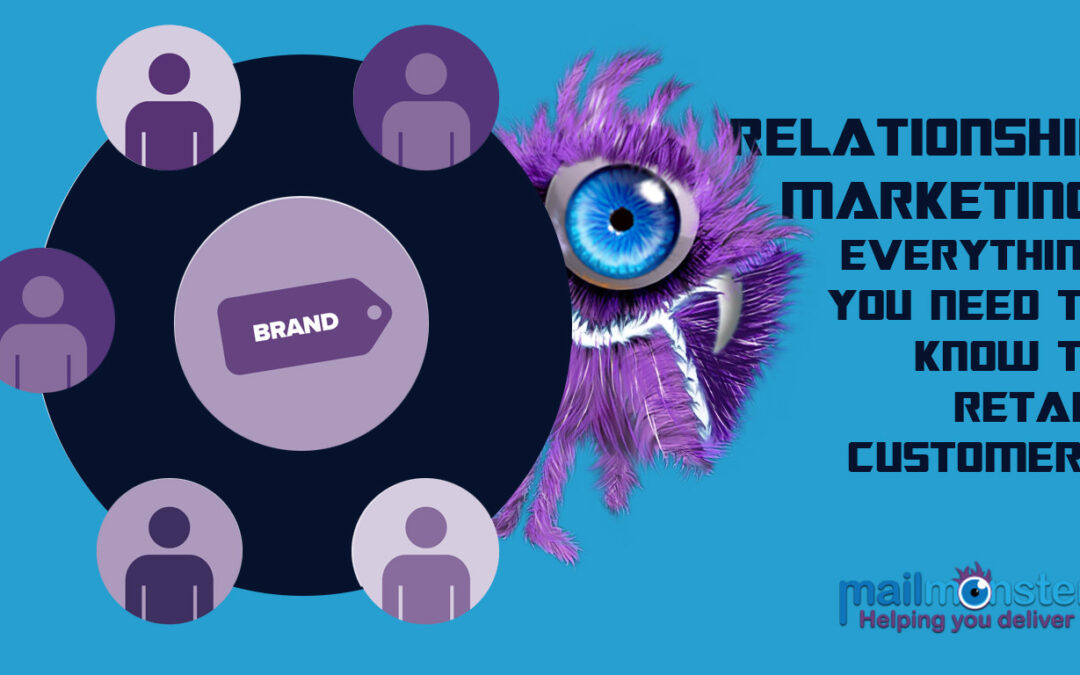Relationship Marketing is a strategy with the objective of building and spreading the brand, building customer loyalty and creating authority in the market. Find out how you can put it into practice in this post!
Relational Marketing is the set of brand building and dissemination strategies, prospecting, loyalty and creation of authority in the market. The objective of Relationship Marketing is to conquer and retain customers, in addition to turning them into advocates and promoters of the brand.
Have you ever stopped to think about what is essential to maintain a good relationship? Being listened to and having someone who really cares about what you need are some of the factors we can mention. And brands that propose to do this work with their customers are applying the principles of relationship marketing.
In the midst of the large amount of information we receive every day, have you ever had a very positive experience with a brand? So positive that you not only became a loyal customer of the product, but also acquired other solutions from the same company and became a true promoter of the brand?
If you had that experience personally, or if you have already witnessed it in some way, you certainly remember it. In the end, who doesn’t like to be treated well and feel special? And, if you’ve already experienced that situation, you may have asked yourself: Why do some companies bother to create those experiences? Is it just to build customer loyalty? Are those actions worth it financially?
The answer to all these questions has a name: Relationship Marketing. And it is much more than an action to obtain clients. It is a strategy that involves brand building, customer loyalty, brand diffusion and creation of authority in the market.
Next, we are going to talk about what Relationship Marketing is, what it is for, how to apply it and if, in the end, it is worth it.
What is Relationship Marketing
When we think of relationship marketing, we can say that it encompasses strategies such as:
- Brand building and diffusion
- Loyalty and creation of market authority;
- Contact with the public in different channels of Digital Marketing and communication;
- Close communication of each person with the Ideal Client Profile (ICP);
- Marketing automation with your contacts.
The main objective of establishing this relationship is to win and retain customers, as well as to convert them into brand advocates. Another objective is to become a reference in the market, mainly due to the good experiences offered to users.
To achieve all this, the company basically creates a relationship in which it offers advantages to its clients and prospects through well-structured communication actions.
What is Relationship Marketing for?
As we have said, Relationship Marketing aims at much more than helping with sales. It is not just to get customers, but to get fans. But that’s a two-way street: you need to offer something your customer can’t get elsewhere. In the end, giving is how you receive.
Relationship Marketing is not a strategy that occurs only in the short term: on the contrary, its objective is to create a continuous and preferably progressive relationship, either by making a customer become a fan or by making a customer of a product or service. basic evolve for more complex alternatives of your solution.
And, in addition to generating new income and recurring billing, Relationship Marketing brings the customer closer to the company, which benefits not only the customer – who gains faster and more personalized responses to their questions and problems – but also the company, which receives feedback more consistent and you have the ability to learn with your audience and continually improve your solution.
Think, for example, that with Relationship Marketing, the public can approach your company and learn more about what you do and the solutions you offer. That way, the chances that they will perceive the value of your solution is higher, and therefore the probability that they will buy is also higher.
In addition, if the public has a good experience with your company, they will probably want to share that positive experience with other people, generating a multiplier effect that impacts the acquisition of new customers.
Why is it important to maintain the relationship?
When understanding what relationship marketing is for, it is common to wonder if it is really important to a company. After all, is this the right way to do marketing? What is the problem with the traditional model? The truth is that Relationship Marketing is a complementary strategy to several others that you can use.
However, it is essential to know that it contrasts with the more traditional marketing approach, which focuses on promoting something without worrying too much about the moment of your prospect. In the model that does not value the relationship, the customer cannot buy something from the brand again in the future or can even forego a purchase.
Meanwhile, organizations that combine elements of traditional and relationship marketing can place the customer in the most important role for the success of the company.

